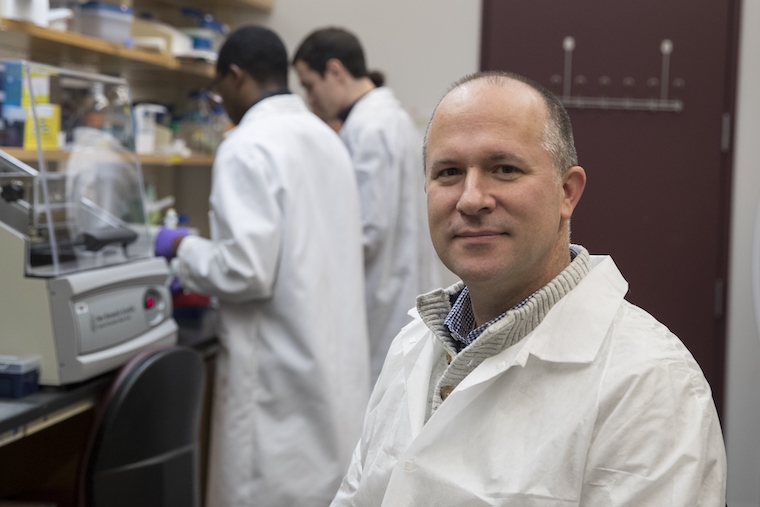C. difficile is a dangerous infection that often plagues patients on long-term antibiotics. It's a particular problem for hospitals and nursing facilities. But our Jason Papin, PhD, and his collaborators are using advanced computer models to identify its weaknesses and pave the way for better treatments.
Antibiotic resistance is a growing concern in general, so scientists are eager to find new ways to treat C. difficile. The C. difficile bacterium naturally lives in our guts, but extensive antibiotic use can allow it to establish dangerous infections that cause diarrhea, nausea, fever, even death.
Professor Papin and his team in our Department of Biomedical Engineering sought to identify potential weaknesses in C. difficile by better understanding its cellular metabolism, the chemical processes that allow it to grow and reproduce. To do this, researcher Matthew Jenior, PhD, developed advanced computer models, called “genome-scale metabolic network reconstructions,” or GENREs, of both a newer, “hypervirulent” form of C. difficile and a better understood, less dangerous form.
This work allowed Jenior to identify vulnerabilities in C. difficile that could be its undoing. For example, the models were able to predict that C. difficile depends on a particular cellular process for using carbon as food. Blocking that process might allow doctors to starve the bacteria to death, essentially.
It's promising work, and it represents a significant step forward in the use of GENRES to battle infectious diseases.
“This computer model has the potential to significantly advance our understanding of this important human pathogen,” Papin said. “The ability to actually predict whether a microbe can survive in a specific environment or without a particular gene has profound implications in drug discovery and the development of therapeutic approaches.”
